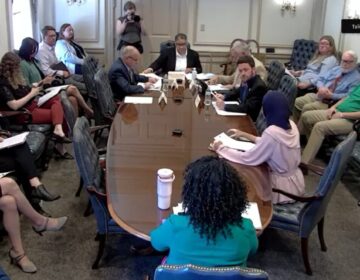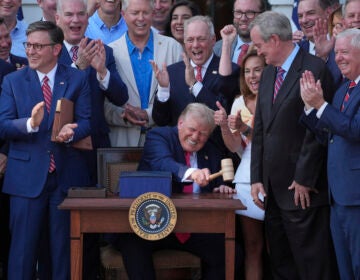Penn study finds ads target voters, but voters don’t approve
These words are spoken by a woman in an advertisement paid for by Crossroads GPS, the SuperPAC connected to Republican strategist Karl Rove.
“I always loved watching the kids play basketball. I still do. Even though things have changed. It’s funny. They can’t find jobs to get their career started. And I can’t afford to retire. And now we’re living together again.”
As the female speaker literally ages years before our eyes, she explains she used to support President Obama but her family’s experience has convinced her that he has done too little to address the federal deficit.
If you haven’t seen this ad, that may be because it wasn’t meant for you.
A hallmark year for tailored ads
Tailored political advertising has taken off this election cycle, even though, as a new University of Pennsylvania study finds, Americans don’t like it.
Online, different ads can pop up based on an internet user’s reading habits, or if they’re a woman, or live in a key congressional district.
Campaigns track site visitors, buy information from third parties to target ads, or use strategies such as targeting ads on Facebook to the friends of candidates’ supporters.
Joseph Turow led the research team at University of Pennsylvania’s Annenberg School for Communication that measured audience sentiment about the tailored ads.
They found 86 percent of American’s don’t go for the idea, and opposition rose when they learned about real scenarios, like the Facebook friends tactic.
“In one case that word was angry,” said Turow. “It was quite clear that people are upset, concerned and angry that this stuff would happen.”
Opposition rose when respondents heard about real scenarios, like campaigns buying ads on facebook targeting the friends of people who support a candidate.
“People just don’t know that this stuff happens, they don’t know it happens, but when they’re confronted with something they…say no of course not.”
Turow conducted the research with Michael X. Delli Carpini, Professor of Communication and Walter H. Annenberg Dean.
Politics versus products
Turow says they found people dislike tailored political ads more than targeted ads for soap or cars.
He thinks voters are concerned with maintaining their own identity and want to know they’re getting the same information as everyone else.
Still, Turow acknowledges, that’s not to say the content doesn’t work. Americans don’t like negative political advertising either – but the world of politics knows negative ads still change minds.
Like negative ads, he says, over the long haul, he argues tailored ads could be corrosive to the political process.
“Should I believe a politician who’s targeting me when maybe that person is giving a very different type of ad with a very different spin to somebody else?”
WHYY is your source for fact-based, in-depth journalism and information. As a nonprofit organization, we rely on financial support from readers like you. Please give today.




